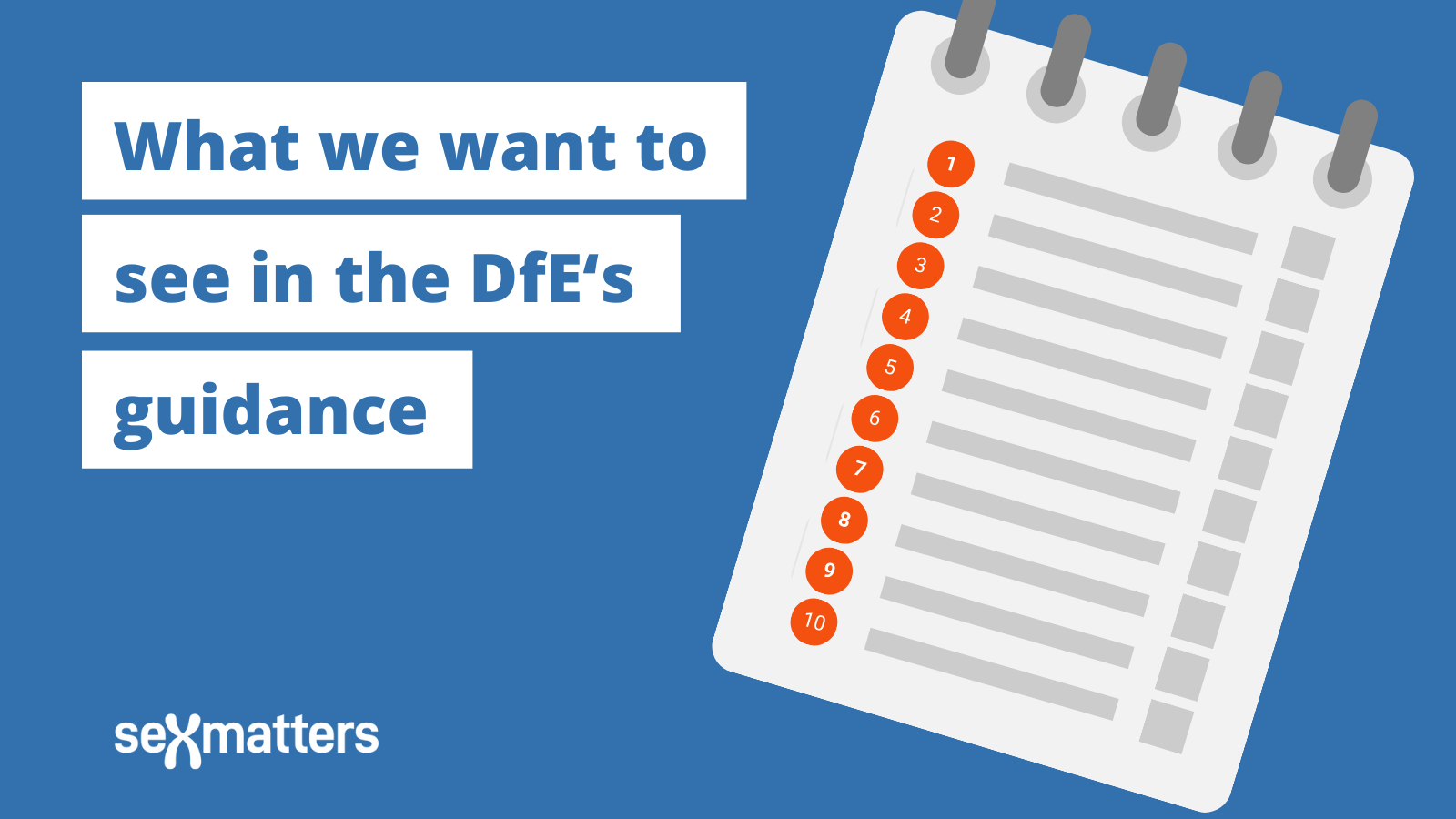What guidance from the Department for Education needs to say

As a survey commissioned by Sex Matters and carried out by YouGov last year showed, there has been a huge increase in the number of school pupils identifying as trans or non-binary, alongside huge disagreement about how best to manage this. The one thing that schools agree about is that the Department for Education (DfE) needs to supply clear guidance, as soon as possible.
Without such guidance, decision-making is left to individual school leaders, and many are influenced by who’s shouting the loudest: in this case, activist groups with flawed recommendations that weaken child safeguarding and infringe other pupils’ rights.
It is the duty of the Secretary of State for Education to ensure the cohesive and lawful functioning of the education system. The lack of guidance from the Department for Education leaves school leaders and governing bodies to make decisions they might struggle to defend in court – and exposing children to risk of harm.
Sex Matters’ new briefing sets out ten key principles against which the official guidance from the DfE should be judged.
Ten principles for clarity and fairness
1. Support schools in line with the law. The guidance must be clear, simple and based on existing laws and regulations, and schools’ statutory responsibilities. It needs to provide school leaders with a legal a “safe harbour” in the form of a model policy, backed by sound legal analysis.
2. Provide coherent, consistent guidance across the education system. Individual schools are part of a system that educates cohorts of children from age 4 to 18 or 19. School leaders and governing bodies, local authorities, teachers and other staff, parents and pupils all need to share the same set of clear expectations. .
3. Direct schools to collect sex-based data. Schools should be reminded of their statutory obligations to record, store, use and share accurate information on the (biological) sex of all pupils – not their self-declared “gender identity”, which is likely to count as “special category data”, subject to strict controls and irrelevant to their education.
4. Uphold the Admissions Code. The DfE should state clearly that single-sex schools are under no obligation to consider any application from a child of the opposite sex: any case-by-case consideration on grounds of “gender identity” is a breach of the Admissions Code.
5. Uphold single-sex spaces. Schools must be reminded of their statutory obligation to provide single-sex toilets, showers, changing-rooms and sleeping accommodation for the age groups set out in law. All pupils should be told that they must not use facilities for the opposite sex, but schools should seek to accommodate trans-identified children.
6. Uphold single-sex sports. Mixed-sex sports are acceptable only when they do not disadvantage girls. No gender-confused child should be excluded from activities for their own sex; no child should be permitted to join activities for the opposite sex.
7. Avoid undermining safeguarding. Both protection for free speech and accurate data on sex are essential for risk assessment and child safeguarding. Schools and teachers should be reminded of their obligation to work with and share information with children’s parents and guardians on all safeguarding matters. Children must not be subject to lower standards of safeguarding because they are trans-identified.
8. Rule out full social transition in school. It is impossible to treat any child as if they are a member of the opposite sex in a school environment. A full social transition would expose a child to unacceptable safeguarding risks as well as infringing on other pupils’ rights.
9. Uphold freedom of belief and speech. School policies should not restrict pupils’ freedom to hold and express lawfully protected beliefs (including in the material reality of the two sexes). They should require all children to treat each other with respect, but not to pretend that a trans-identified classmate has changed sex.
10. Support clear sex-based rules and consideration for gender non-conforming children. Schools should use sex-based distinctions in policies and rules only where they are justified, and should consider reasonable accommodations to ensure that gender-distressed children are able to access education. This reduces the potential for both unlawful sex discrimination and unlawful gender-reassignment discrimination, and will help ensure appropriate provision for all gender non-conforming children, whether or not they are trans-identified.
Sex Matters has also produced a model policy for schools.
